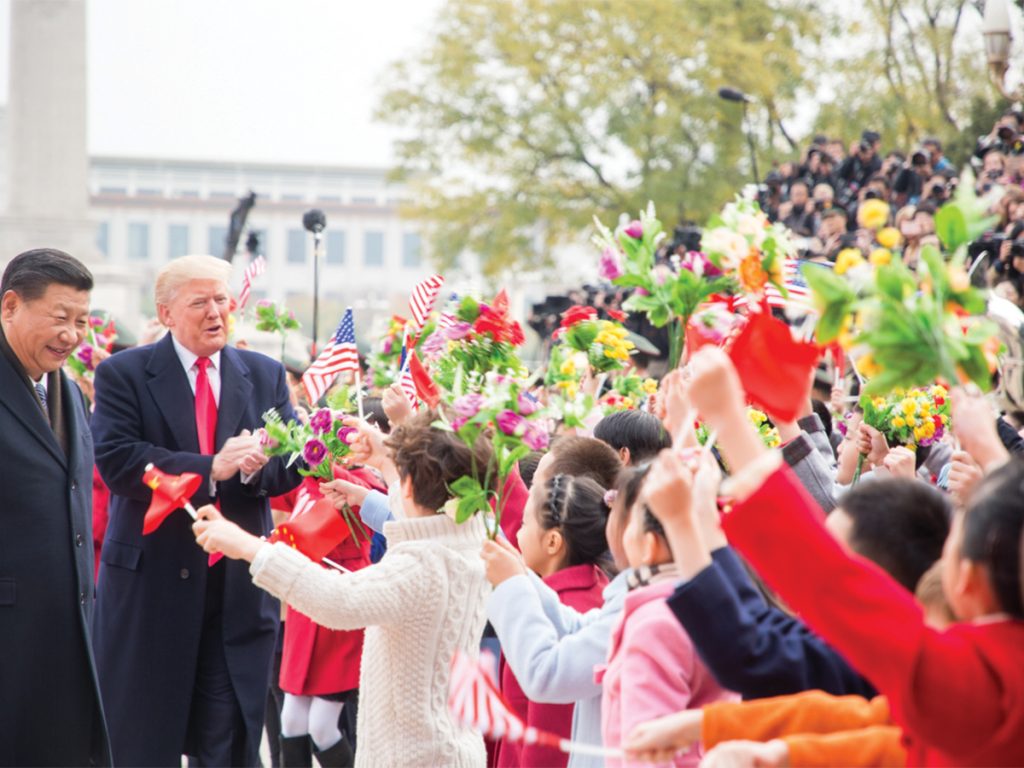
On Monday, Sept. 17, Donald Trump imposed 10 percent tariffs on $200 billion worth of products imported from China, including goods like toilet paper and seafood. Although sizeable, these tariffs are merely the tip of the iceberg, as President Trump has threatened China with tariffs on an additional $267 billion worth of imported goods. The president has claimed these tariffs are necessary to protect the interest of domestic producers. Although president Trump’s reasoning to support these tariffs may seem well-intentioned, closer inspection exposes his ignorance of economic realities.
What exactly is Trump’s reasoning and logic behind these tariffs? The president stated that these tariffs are in response to China’s “unfair trade practices” and views them as an essential move toward providing fair treatment to American companies. Furthermore (and not surprisingly), Trump has pulled the classic excuse of using tariffs to protect American consumers and workers.
In this case, China is framed as a predatory competitor by President Trump; a country actively damaging American consumers and workers by flooding our markets with cheaply produced and mediocre goods. His proposed antidote is to tax these goods, therefore supporting domestic industry.
The sole beneficiaries of trade barriers, however, are actually just specific sectors that produce the same goods that have the tariffs imposed on them; the elimination of foreign competition will reduce their pressure to keep prices as low as they might otherwise be. As select businesses benefit from this reduced competition, the burden of increased prices will inevitably be passed on to consumers. As a result, tariff policies actually hurt the consumer more since they raise the prices of imported goods and consequently limit consumers’ choices.
Economist Frederic Bastiat once noted in his essay, “Unfair Competition with the Sun” that tariffs are preposterous and often a mere excuse for companies to get richer, instead of benefiting their workers. Bastiat argued that foreign competition actually offers cheap and plentiful goods by eliminating inefficient domestic competitors and allocating resources to the most effective producer. He expressed this idea by claiming that if candlemakers were afraid of foreign competition, they might as well block out the sun.
To make matters worse, the imposition of tariffs often leads to a trade war. After all, China has already retaliated against Trump’s recent tariffs with 5 to 10 percent import taxes on $60 billion worth of American goods. We can confidently expect a superpower like China not to back down easily, especially when considering that China’s Ministry of Commerce has declared an “economic emergency” in response to the tariffs. This is an even more important point to consider when realizing that China provides a whopping $506 billion worth of goods to the United States annually.
Trade wars are often indicators of strenuous and hostile situations between nations, resulting from barriers such as tariffs. For example, consider the relationship between North Korea and the United States: two nations which have established considerable trade barriers and maintain hostile relations. On the other hand, note the cooperation between the United States and the NAFTA (North American Free Trade Agreement) countries of Mexico and Canada: the three countries often hold economic summits and allow their countries to exchange goods freely.
Peace between nations, in other words, is often marked by free or mutually beneficial trade. Considering the vast amount of our debt held by China and the size and aggression of their military, would it be a smart idea to engage in a trade war? Absolutely not.
What Trump is selling as logically and economically sound tariffs against China are actually reflections of either his ignorance of or disregard for the realities of the international economy. Trump should recognize that imposing these policies on China is not the wisest choice. If he cares about the American consumers and workers, he should really reconsider his approach with other countries when it comes to trade.
China will not give up easily, and it is a superpower that one should be approach carefully. As Garnet Joseph Wolseley (a recognized British army officer which served in China during the Opium Wars), once stated, “Once awakened, China will become a Frankenstein monster … once woken it will fight tooth and claw.”








